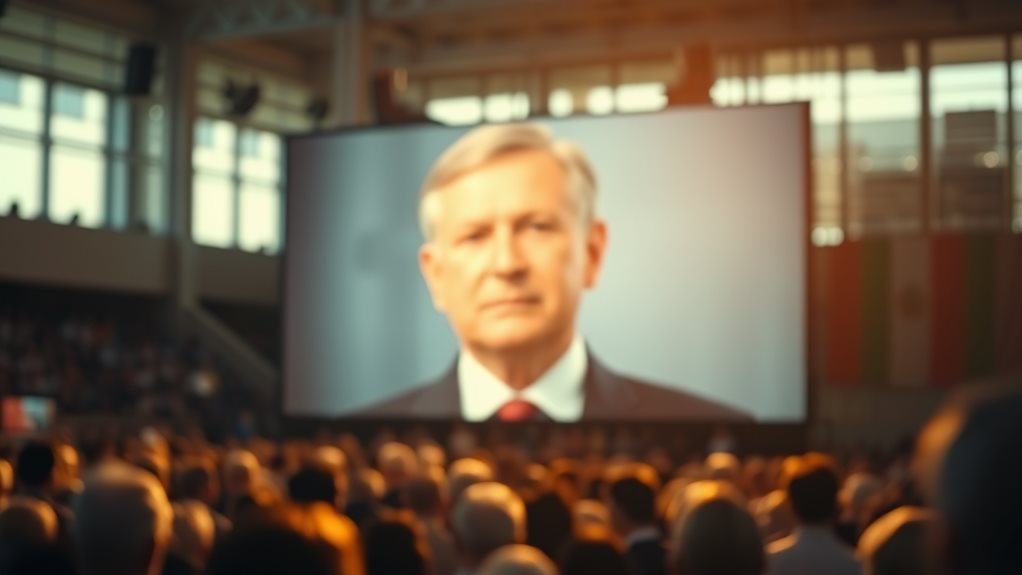You’re constantly exposed to media coverage of elections, shaping your perceptions of candidates and policies. News outlets and social media platforms play a significant role in swaying public opinion and influencing the democratic process. By selectively highlighting specific issues and framing them in a particular way, media sources can alter your views and, ultimately, your vote. Staying informed through reliable sources is essential. For those interested in exploring the latest trends and insights beyond politics, discover expert recommendations on casinos en línea con altas tasas de pago and experience the thrill of real-money gaming. As you consider the power of media in shaping elections, the question remains: what other factors are at play in this complex relationship?

Agenda Setting and Framing
While various factors can impact election outcomes, the media play a crucial role in shaping public discourse through agenda setting and framing.
You’re constantly exposed to media narratives that influence your perceptions of candidates and issues. News consumption, in particular, has a profound impact on your understanding of the electoral landscape.
The media’s selective coverage of certain topics or events shapes the public agenda, directing attention toward specific issues. By framing stories in a particular way, the media can also affect how you interpret and evaluate information.
As you navigate the complex media landscape, it’s important to recognize the subtle yet critical influence of agenda setting and framing on your electoral decisions. This subtle influence can considerably shape election outcomes.
Media Bias and Voter Perception
As the media shapes public discourse through agenda setting and framing, another crucial aspect to contemplate is how media bias influences voter perception.
You’re constantly exposed to various forms of media representation that can greatly impact your views on politics and politicians. Media bias can alter your perceptions of reality, making you more likely to engage with certain issues or candidates while dismissing others.
This, in turn, affects voter engagement, as you’re more likely to participate in the electoral process if you feel strongly about a particular issue or candidate. Research has shown that biased media representation can lead to increased polarization and decreased civic engagement.
Consequently, it’s imperative to recognize and critically evaluate media bias to make informed decisions at the polls.
The Impact of Social Media on Elections
Because social media has become an indispensable tool in modern politics, its impact on elections can’t be overstated. You see this influence play out through viral campaigns that swiftly gain traction among voters.
Social media platforms have dramatically altered how politicians engage with their constituents, launch targeted advertising, and shape public discourse.
However, a critical concern is the spread of misinformation. Misleading statements and outright falsehoods quickly disseminate across these platforms, often before fact-checking occurs. This creates risks for voters, as they might rely on inaccurate information to make voting decisions.
As a result, social media’s dueling roles – amplifying campaigns and spreading disinformation – underscore the need for media literacy and vigilance during elections.
Social media companies must address these challenges to protect the integrity of democratic processes.
Shaping Public Opinion Through News Coverage
News coverage plays a significant role in shaping public opinion during elections, with voters often relying on media outlets to inform their decisions.
You’re exposed to various news narratives that influence your perceptions of candidates and issues. The way news stories are framed, the language used, and the emphasis on specific topics all contribute to shaping public perception.
Research has shown that repeated exposure to news coverage can lead to changes in your attitudes and opinions. In addition, the tone and bias of news coverage can also impact your perceptions.
You may unknowingly adopt the views presented in the news, which can affect your voting decisions. It’s crucial to recognize the potential influence of news coverage on your opinions and make informed decisions by seeking diverse sources.
The Role of Media in Campaign Advertising
While campaign advertising is just one facet of a broader election strategy, it has become an indispensable tool for candidates seeking office.
You rely on advertising to get your message out, reach your target audience, and sway undecided voters. This aspect of your campaign strategies accounts for a significant portion of your budget, underscoring the perceived importance of advertising effectiveness.
As you develop your advertising strategy, you want to maximize your return on investment. Your ads must grab attention, be memorable, and make a compelling case for your candidacy.
Investing in research and analysis helps you tailor your message to specific demographics and measure ad performance, allowing you to refine your approach and optimize your advertising spend. This targeted approach boosts your advertising effectiveness.